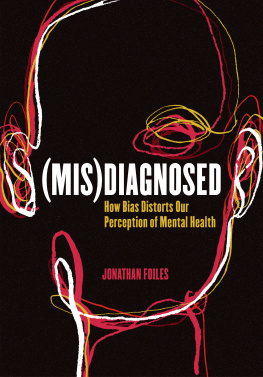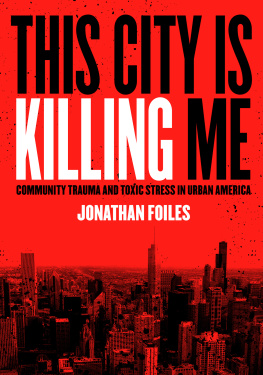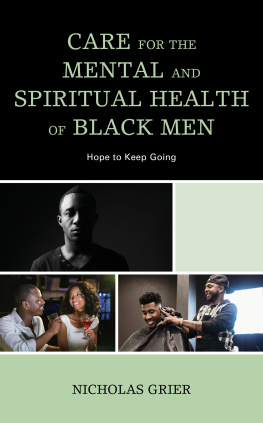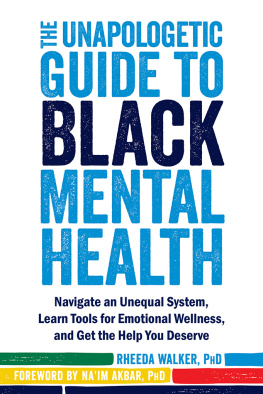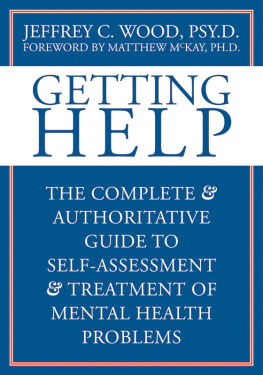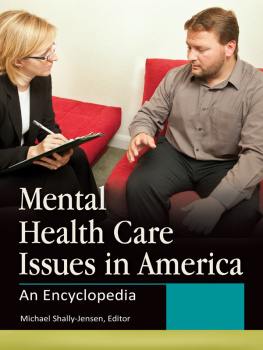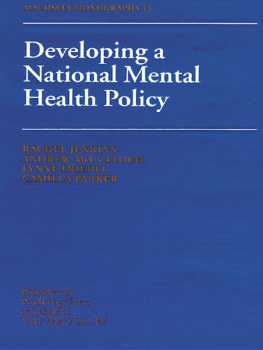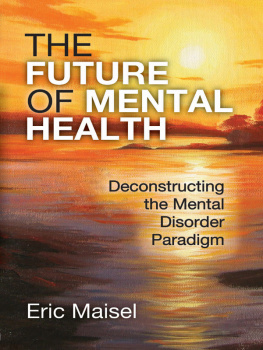Table of Contents
Guide
Page List
(MIS)DIAGNOSED
Copyright 2021 by Jonathan Foiles
All rights reserved. This book or any portion thereof may not be reproduced or used in any manner whatsoever without the express written permission of the publisher except for the use of brief quotations in a book review.
First edition 2021
1 2 3 4 5 6 7 8 9
ISBN: 978-1-948742-99-3

Belt Publishing
5322 Fleet Avenue
Cleveland, Ohio 44105
www.beltpublishing.com
Cover art by David Wilson
Book design by Meredith Pangrace
For Edmond
Psychotherapy takes place in the overlap of two areas of playing, that of the patient and that of the therapist. Psychotherapy has to do with two people playing together. The corollary of this is that where playing is not possible then the work done by the therapist is directed towards bringing the patient from a state of not being able to play into a state of being able to play.
Donald Winnicott, Playing: A Theoretical Statement
TABLE OF CONTENTS
A young woman sits across from me, a shock of bleach blond hair obscuring her face. Her gaze is focused on the tissue she is twisting in her hands. Bits flake off like snow and fall on the floor in front of my desk. She is here for an intake interview, beginning the process of unraveling her life story to get the help she has realized she needs. Her mother is already one of our patients; she is down the hall speaking with her psychiatrist.
Madeleine has told me that she is concerned about her depression, and she relates a number of symptoms that meet criteria for the diagnosis: persistent depressed mood, poor sleep, poor appetite, loss of interest in activities that used to interest her, lack of energy. She tells me that she has thought about killing herself. She also mentions that her entire family has discussed mass suicide, a disclosure that chills me as I try to calmly assess the seriousness of the threat. Her father overdosed on heroin just last week and was brought back with naloxone. Its happened so often that shes lost count. Hopelessness is the water in which her family swims.
Before I proceed on to the myriad of other questions her public aid insurance forces me to ask her prior to beginning treatment, I check through a mental list of other symptoms to make sure Im on the right track.
Do you ever have times when you feel the opposite of depressed, like you could do anything and dont even need to sleep?
Her tear-brightened eyes jump up to meet mine. Well, actually, yeah, sometimes Ill stay up all night and clean and clean the house even though it doesnt need it. I might sleep an hour or two or I might go a few days without sleep, but I actually feel pretty great.
Do you have any issues with anger or irritability?
Shame descending, she replies, Well, um, yeah, I do tend to yell quite a bit and cuss out my family. I mean, Ive never hit them or anything, but I might throw things, punch the wall, stuff like that.
During those times, do you do things you wouldnt really think of doing otherwise or things that are considered to be pretty risky?
She stares at me uncomfortably. Um, well, this is confidential, right?
I assure her that it is.
Well, anyway, I have tried cocaine when I feel like that, just to make the feeling last, you know? But I havent really told anyone that before.
With a few more questions, I am reasonably confident that bipolar disorder better fits her experience. Setting aside the keyboard I have been using to type up my clinical impressions, I lean forward to give her the news.
Based on what weve talked about so far, I think that you have bipolar disorder. It is serious, but it is also very treatable. Im really glad that you came in and decided to ask for help. Do you have any questions I can answer right now?
For the first time, a smile cracks across her small face. I just thought I was crazy this whole time. I honestly just feel relieved to know theres a name for all of that, you know?
Later in that same office, I sit across from one of my therapy clients, a young man named Michael. Someone else has already done his intake, and he arrives with a diagnosis: schizophrenia. Not that I needed to be told. While the word schizophrenia most often conjures up images of a person seeing or hearing things that arent there, or conjuring fantastic narratives that arent true (known as positive symptoms), the disorder also includes what we call negative symptomsthings that take away from a persons normal functioning. Theres an interior hollowness, a depletion of ones energy, an inability to feel much of anything. Most people with schizophrenia will say those symptoms are the hardest part, and the medications that we have right now do little to help address them.
Michael reports experiencing much of this, and like many millennials, he has turned to the internet to help him understand his symptoms. This has led him into the wastelands of YouTube and its algorithm, and he tells me what he saw.
Ive been watching videos of other people who are diagnosed with schizophrenia, older people. They were saying that life has been hell for them, and it just gets worse and worse. A lot of them said that they want to die.
He is both right and not right, as I try to explain to him. If schizophrenia is detected early, as his was, the outcomes are much better than if it is allowed to progress untreated. Since it is usually a disease that strikes in young adulthood, precisely when most of us feel that were invincible anyway and have no need to see a doctor, this is often easier said than done. However, the severity of the episodes Michael has experienced to date is concerning, and his psychiatrist has yet to find an antipsychotic that hits the middle ground of blunting his symptoms without erasing his core identity. I try to explain all of this as gently as I can, but I can feel the tightrope underneath my feet.
So what youre saying is that you cant really be sure, but they could be right? I just... I dont want to end up like that. I cant.
I end up doing something that I wouldnt do now, and that is to try to match his stories of endless suffering with those of other people with schizophrenia who have managed to thrive. From the perspective of the present, I realize that instead of allowing both of us to sit with his feelings, I grew uncomfortablescared evenand acted out of my fears. But at the time, I did what I thought would help.
Together, we watch a TED Talk by Elyn Saks, an accomplished USC law professor who has also been diagnosed with schizophrenia. I can tell he is unimpressed, but he is kind and humors me. At the conclusion of our session, I check and he assures me that he has no plans to try to kill himself.
Michael wont tell me for some time, but he will continue to watch those YouTube videos. He grows more distressed as he imagines what his future holds, sees all the ways it might be constricted. When one of the videos mentions a way to kill yourself that is supposed to be relatively quick and pain-free, he will think about it. Months after our conversation, after several other sessions, he will try it when his family and I least expect it. But his story doesnt end there; he will be hospitalized then and a few other times, and somewhere along the way he will find the right combination of medications. They will help restore him to himself, and he will begin to allow himself to dream. He will start to relate to the idea of schizophrenia in a different way.

